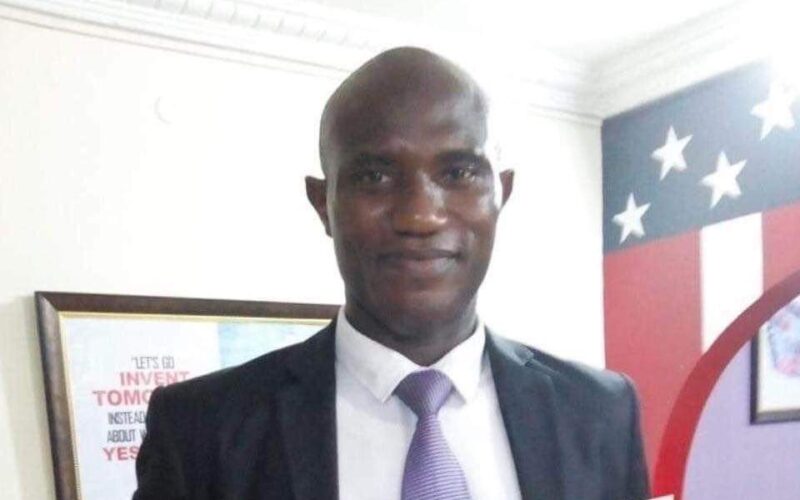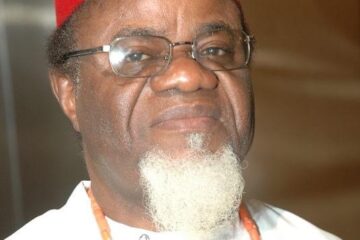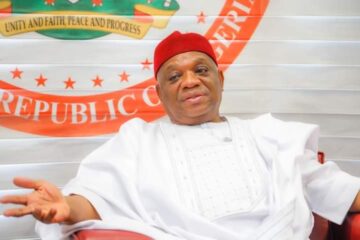For more than two decades, the Nigerian federation has been enmeshed in complex waves of violence and insecurity of multidimensional proportion with multiplier effects on livelihoods and the nation’s economy.
While a majority of Nigerian stakeholders fault the 1999 constitutional configuration of the federation as an avatar of deeply entrenched cum systemic injustice, two geopolitical zones (North East and North West) with hegemonic sway see nothing wrong with the status quo. For instance, clauses in the Nigerian constitution that underscore entrenched injustice include inter alia: immunity which engenders impunity and insulates top corrupt government officials from prosecution, the geopolitical imbalance which perpetuates the North-South dichotomy, duality (secularism versus Islamic connotations) which constitutionally affirms entrenched Islamic predominance in a vastly heterogeneous federation.
Apart from what is encoded in the nation’s legal framework, the administration of Muhammadu Buhari has often been attacked for his defiance in the flagrant promotion of nepotism, favouritism of Fulanis, Muslims and poor handling style of the country’s security challenges.
Since Buhari took the reins of power from 2015 as civilian president, the spate and intensity of violence perpetrated by Boko Haram, Fulani herdsmen and bandits continue unabated. Although the president has often talked tough against criminal elements and his administration’s commitment to tackling insecurity, his words are not seen to be matched with actions as the country under his watch seemed to be engulfed in violent conflagrations.
The country is on a rampage by gunmen, Fulani herdsmen, bandits ISWAP and Boko Haram. Tensions are high. There is fear in the land. The government has technically failed in its responsibility to protect (R2P). States and geopolitical zones are perplexed and resorting to self-help measures. Nigeria pseudo federalism marked by over-concentration of power at the centre has reached the brink of collapse. The unity of Nigeria and its survival is under an existential threat. There is public outcry. Who is in charge? From where comes the help of defenceless Nigerian citizens?
What then is the way forward? State policing? Declaration of state of emergency on security? Convocation of National security summit or council? Inviting or involving foreign mercenaries? Calling for international help? Decentralization of the security architecture or restructuring of the federation?
A critical assessment of the handling style of national security matters by the Buhari’s administration reveals an apparent contradiction between policy statements and implementation marked by injustice which translates to a game of ruses. Some pertinent but mind-boggling questions are pointers to buttress the fact of the presidency is playing the game of ruses.
One, constitutionally it is illegal for any individual or group of persons to bear unlicensed arms. The question now is, how come the Fulani herdsmen wield sophisticated weapons with which they carry out wanton killings of genocidal proportion with brazen impunity? Why are they not proscribed as terrorists considering their unprovoked violent attacks in the South and North Central as well as targeted Christian communities in Kaduna?
Why is the presidency so particular about grazing lands across the states of the federation for Fulani herdsmen? Why the preferential treatment? Why are they not disarmed? Why is it that any Fulani herdsman caught with evidence of culpability of violent crime is often set free without prosecution? What is the rationale behind the 100billion naira demand by Miyetti Allah Cattle Breeders Association of Nigerian (MACBAN) in 2019? Why is Sheikh Gumi, the vocal advocate of bandits not invited by the Department of State Service (DSS) for questioning, the same way Mr Obadiah was invited? Why is Pantami, the Minister of Communication and Digital Economy not probed or shown the exit door like the former Minister of Finance, Kemi Adeosun?
Hence, Buhari‘s government preferential treatment of his kinsmen jeopardizes national security and can be construed as complicity as such and even legitimization of Fulani preponderance by violent means.
Two, how does IPOB‘s agitations for self-determination translates to terrorism? Why are they not invited to the round table and engaged in dialogue? Why are their peaceful activities or rallies often responded with bloody military action and disproportionate force, without care for collateral damage on innocent civilians? The crackdown on unarmed secessionist agitators, as opposed to engagement with bandits and terrorists in negotiations, negates the very principles of justice in which good governance and inclusiveness are subsumed.
Three, why does the president talk tough and act like a toothless bulldog in reacting to issues of national security? Body language and talking tough without commensurate actions is tantamount to failure.
Four, why is Nigeria’s constitution devoid of a referendum? Referendum can be defined as the referring of a political question to the direct vote of the electorates. A referendum usually contains two options for which the electorate are expected to tick only one of either YES or NO. A referendum gives the electorate the opportunity to their political sovereignty by voting directly on issues of national importance other than their elected representatives.
In the final analysis, a sincere attempt to address their questions objectively without been blurred by ethnic, religious and/or political sentiments, will result in the admittance of deeply entrenched systemic injustice as the root cause of violence and its unabated escalations in Nigeria. The government has adequate knowledge of the crises situation and the wherewithal to tackle it.
But its passivity evokes suspicion of a well-coordinated evolving game plan which is not unconnected to the Fulanization and Islamization of Nigeria. It appears to be unfolding to meet a targeted deadline. All the reactions and policy statements from the presidency can be interpreted as mere show up, and in fact, game of ruses to buy adequate time.
In conclusion, it can be unequivocally stated that the only solution to Nigeria’s multi-faceted problem is the restructuring of the federation which translates to justice. Restructuring entails power devolution, decentralization of the security architecture, fiscal federalism and resource control, geopolitical parity marked by equal representation, removal of immunity clause, the inclusion of referendum clause and religious justice.
Thus, to forestall the consummation of the suspected Sultanate Caliphate system that is subtly and systematically evolving, it is high time Southern Nigeria and the Middle Belt region galvanized a formidable alliance system and/or coalition to emancipate their people for the sake of posterity. Hence, individual interest must be sacrificed for the collective good.
Micaiah Kalu is a peace and justice advocate. He is an ardent advocate for a restructured Nigerian federation.




